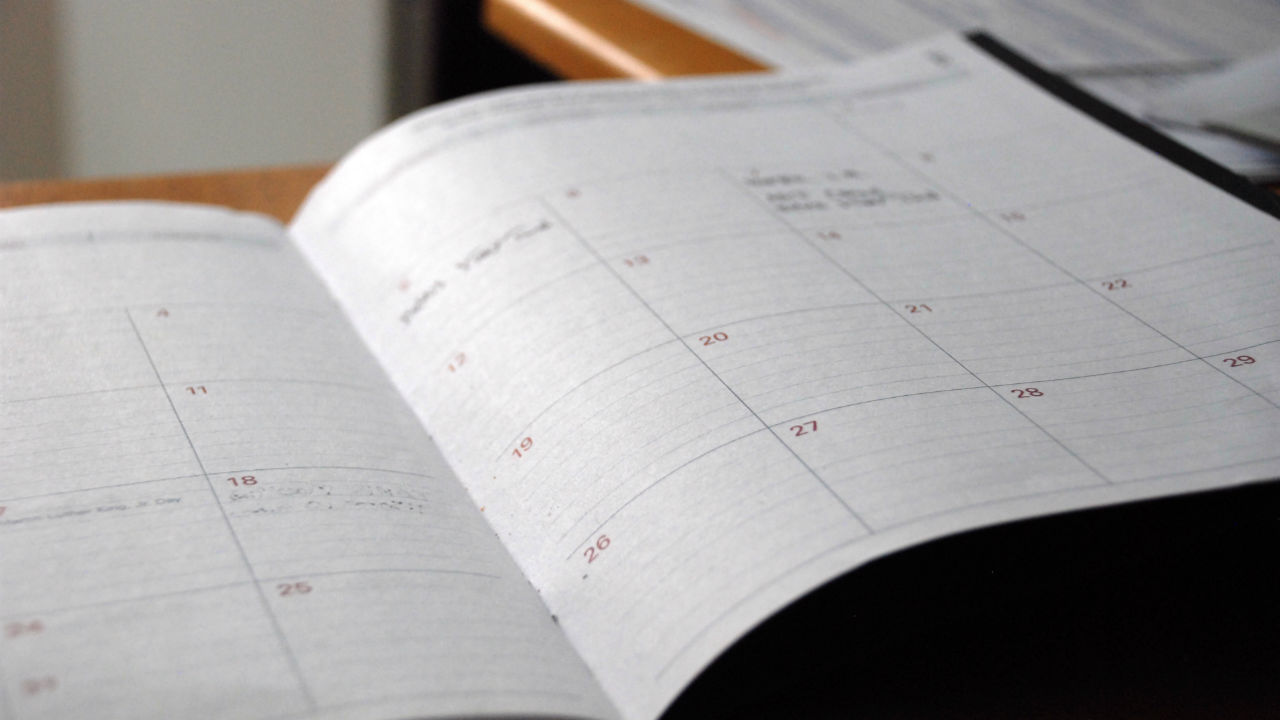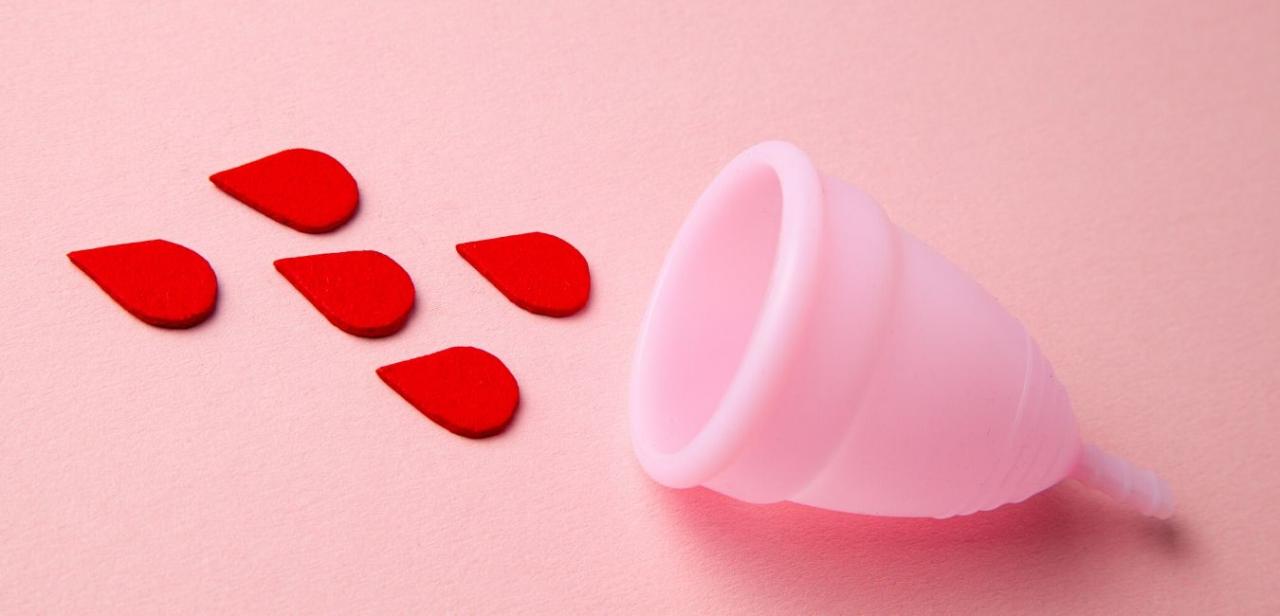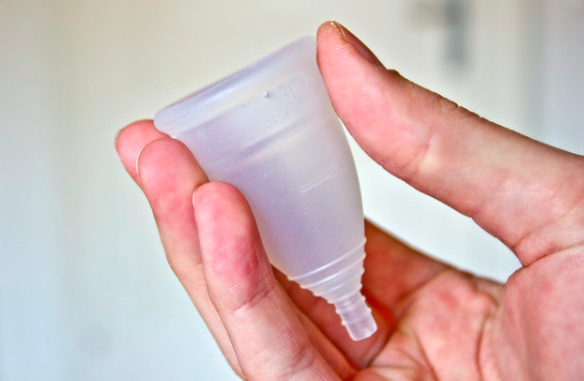
Image via Unsplash
I'm 29 yrs. old and I've been having my menstrual cycle for 3 weeks to 1 month with about a 2 week break between each period. Along with my period I have huge clots. This has been happening since I had my daughter in 2006. I saw a doctor about it and he just put me on birth control pills to try and regulate it, but that just caused me to have blood clots in my lungs. I went on Coumadin and my period was normal while I was on the meds. Now I'm off Coumadin and my period went back to being long again and with the huge clots. Is there something my doctors should be testing for? Why am I having a 3 week menstrual cycle? Can this cause complications with conceiving again? What is wrong with my cycle?
All user-generated information on this site is the opinion of its author only and is not a substitute for medical advice or treatment for any medical conditions. Members and guests are responsible for their own posts and the potential consequences of those posts detailed in our Terms of Service.





Add a Comment153 Comments
Anon,
You shouldn't have your period for two weeks, especially not with blood clots. You are right to have some slight concerns. You may have an ovarian cyst, for instance. Just in the last couple of months here on EmpowHer we had a 16-year-old girl whose period was VERY heavy and wouldn't stop (longer than yours) and she ended up having large cysts and an infection and had to have a hysterectomy. I do not want to scare you but I do want to give you that information so that you know it IS possible to have a problem at your age that needs a doctor's attention. Are you having any pain with your period? And is this the first time it has gone this long?
Here is the thread from the other girl who had such trouble with bleeding and pelvic pain:
https://www.empowher.com/community/ask/pelvic-pain-and-heavy-bleeding-afraid
She would definitely tell you to get this checked out. Most likely since you are on birth control pills, it is just something hormonal. That can happen very easily and it isn't serious at all. But if you start having pain or if the bleeding just doesn't stop, you need to get it checked out, OK?
February 16, 2010 - 9:40amThis Comment
I have a quick question my fiance and I have been discussing having children...I have hypermenorrhea I am on birth control for now. But later on after the wedding we want to try for a baby how do I go about this and what are my chances of conceiving?
January 7, 2010 - 12:31amThis Comment
The chances of you conceiving really depend on the underlying cause(s) of your hypermenorrhea. Have your doctor(s) talked with you about your specific situation?
Have you talked with your Gynecologist about your interest in trying to get pregnant (and, thus, needing to get off of birth control...the very treatment to help with your hypermenorrhea symptoms), and what other treatment options you have?
You can click on the hyperlinked hypermenorrhea, and find information about available treatment options, and possible causes for this condition.
Let us know what you find out from your doctor, or what you already know as the underlying cause(s) of your specific hypermenorrhea, and we can help you find additional information and resources!
January 7, 2010 - 3:30pmThis Comment
I have been having periods that last over two months I am 19 my doctor put me on birth control an didn't explain what is wrong sometimes they are light and sometimes they are heavy will I be able to have children?
December 11, 2009 - 5:40amThis Comment
Anon,
First of all, welcome to EmpowHer! And thank you so much for your question.
How long have you been having these extremely long periods, Anon?
And do you mean they last two months whether they are light OR heavy?
What you have is called Hypermenorrhea (big name) or Menorrhagia (not quite as big a name), which stands for excessive bleeding during your period. About 10% of all women have this condition.
Here's some information from ourEmpowHer Encyclopedia page on this. It covers a lot of areas that may not apply to you because you are so young, but you may be interested in all of it:
Causes
In some cases the cause of menorrhagia is unknown. However, many conditions have been known to be associated with menorrhagia. These include:
◦Menstrual cycle hormone dysfunction (this means perhaps a hormonal imbalance; easy to test for)
◦Cervical or endometrial polyps
◦Uterine fibroids
◦Infection (pelvic infections)
◦Blood-clotting disorders (you can be tested for this)
◦Anticoagulant medications (blood thinners)
◦Anti-inflammatory medications (large amounts over a long period of time)
◦Liver, kidney, or thyroid disease
◦Problems with an intrauterine device (IUD)
◦Ectopic pregnancy
◦Ovarian cysts
◦Chronic medical conditions
◦Cancer of the uterus or cervix (rare)
◦Vaginal injury from trauma or sexual abuse
◦Complications from pregnancy, such as miscarriage
Risk Factors
A risk factor is something that increases your chance of getting a disease or condition. People at greatest risk for menorrhagia include:
◦Adolescent girls who have started menstruation within the last 12 to 18 months
◦Women approaching menopause
◦Women with hereditary bleeding disorders
◦Women who are obese
SymptomsSymptoms of menorrhagia include:
◦Menstrual bleeding lasting more than seven days
◦Unusually heavy bleeding (soaking through a sanitary napkin or tampon every hour)
◦Menstrual flow requiring change of sanitary protection during the night
◦Menstrual flow including large clots
◦Menstrual flow interfering with lifestyle
◦Fatigue and/or shortness of breath (symptoms of anemia )
Diagnosis
Your healthcare provider will ask about your symptoms and medical history. A physical examination including pelvic exam will be done as part of the evaluation. Tests may include:
◦Pap test
◦Blood tests
◦Pregnancy test
◦Ultrasound —a test that uses sound waves to examine your reproductive organs (uterus and ovaries)
◦Endometrial biopsy —removal of a sample of endometrial tissue to look for changes in the lining of the uterus
◦Dilation and curettage (D&C)—scraping of the inner lining of the uterus
◦Hysteroscopy—examination of the cervix and fallopian tubes using a telescope-like viewing device
Treatment
Treatment of menorrhagia will depend on the underlying cause. Women who experience persistent excessive bleeding should discuss with their healthcare provider whether to take iron supplements to prevent anemia.
If there is no medical disorder causing your menorrhagia, your doctor may prescribe the following:
Medications
These may include:
◦Hormone therapy (estrogen and/or progestogen hormones by mouth, skin application, vaginal application, or injection)
◦An IUD that releases a progestogenic drug (Mirena)
◦Nonsteroidal anti-inflammatory drugs such as ibuprofen (Advil, Motrin), naproxen (Aleve, Naprosyn), and mefenamic acid (Ponstel, Ponstan)
Surgical Procedures
Procedures may include:
◦Dilation and curettage (D&C)
◦Operative hysteroscopy—A long, thin instrument is inserted into the uterus that can aid in removal of a polyp or fibroid.
◦Endometrial ablation or resection—The surgical removal of the lining of the uterus using heat, microwave, or surgical tools. After this procedure, you will not be able to carry a pregnancy.
◦Hysterectomy —The surgical removal of the uterus. After this procedure, you will not be able to carry a pregnancy. If the ovaries are also removed, early menopause will follow.
Your age, overall health, and medical history should be considered when choosing treatment. Discuss with your doctor your plans for having children.
----
In terms of having children, it's first important to get your cycle balanced and to figure out why it goes so long. Getting pregnant has to do with making sure you are ovulating and that your body is building up the uterus in case a fertilized egg happens by. All of that is a function of hormones such as estrogen and progesterone.
Because you are young and you haven't been having periods for more than a few years, it makes sense that your doctor first tries birth control pills to help regular your cycle. How long ago did you start them, and does it seem to be helping?
December 11, 2009 - 9:25amThis Comment
Well I have been on birth control since I was about sixteen and I got off of them for about 8 months to a year and I was put back on them recently I am starting my second month today of being back on it...everything was fine I was regulating good an then I started bleedin in August and didn't stop until a month ago when I was put back on the pill...I understand I am nineteen but my doctor treats me like a child and doesn't say anything accept for ok let's try a new pill...I will be married in less than a year and I would like to kno what is going on so we can start planning our future
December 11, 2009 - 9:44amThis Comment
Anon,
Plain and simple: You need a new doctor.
There is no excuse for a doctor who treats his or her patient like someone who doesn't need detailed information about what is going on in her body.
Don't be shy about finding a new doctor, now. Ask your friends if they have an ob/gyn that they like. And if they say they do, ask about how that ob/gyn acts with them: Do they get detailed information? Is the doctor's manner one of "I am busy, don't bother me?" Or is it, "I am very interested in you, what questions do you have?"
Same with friends in the workplace. Ask them if they have a doctor who freely shares information.
If you can't get a personal recommendation, search the web for ob/gyn offices within your area. Visit the doctors' web sites and see what they say. Very often, the web sites reflect the attitude of the office.
Call your old doctor's office and ask for a copy of your medical records. You can deal with the front office, you don't have to talk to your doctor. If they ask, just tell them you're getting a second opinion (which is true). Doctors are accustomed to this; it happens all the time. Get your records and make an appointment with the new doctor. Take your records with you when you go, and talk about this issue from the very beginning.
Especially since you are beginning a new marriage soon and thinking about planning the future, you need a doctor who treats you like a smart, thoughtful adult with important questions. Don't stop until you find it.
Promise?
December 11, 2009 - 10:03amThis Comment
I promise...I'm just really concerned because my soon to be is in the marines and we definitely want children in a few years...I just get so irritated because this doctor treats me like I'm a sixteen year old pregnant girl...he has been known to be irritable with pregnant teenagers who are unwed an he treats me no different
December 11, 2009 - 10:23amThis Comment
Anon,
Thank you for promising to find a new doctor. Doctors have no business making their patients feel like children, whether there are morals involved or not. Imagine if you WERE a pregnant teenager and he was the one you first came in contact with! You would be even more confused, and probably come away with even less information than you needed, at a time in your life when you really need a good doctor.
You must find someone who listens to you and responds. You are young and healthy and all you need help with is regulating your period and figuring out your hormones. An ob/gyn who has a particular interest in the hormonal side of things will be your best bet. Don't be afraid to call an office where there are a lot of ob/gyns and ask, "Is there one of the doctors who is particularly expert at working with hormones?" They may say "all of the doctors are," but if you press a little, and say "I'm sure you're right, but I'm 19 and need someone who can work with me on why my periods last months," they may feel that one doctor is better for you than another.
Hang in there, make that appointment, and please come back and update us!
December 14, 2009 - 7:37amThis Comment
Libraponi (Michelle),
In order to get more readers to see your question, I've broken it out under a title of its own. You can link to it here:
https://www.empowher.com/community/ask/cryoablation-vs-electroablation-rea-or-rollerball-ablation-any-experiences#comment-24912
July 8, 2009 - 9:42amThis Comment